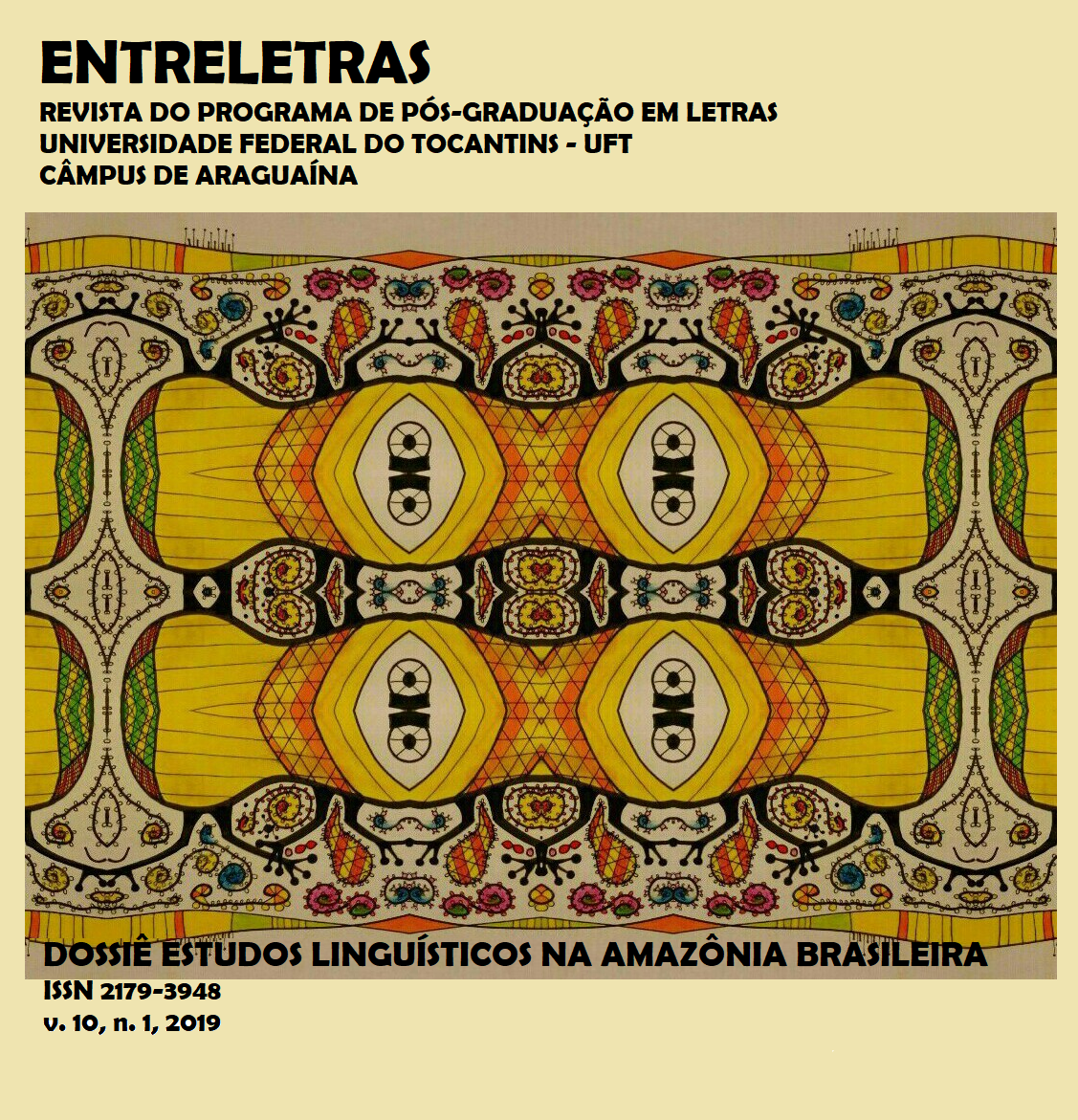LEITURAS DO PASSADO PELA FICÇÃO:
UM OLHAR LITERÁRIO À COLONIZAÇÃO BRASILEIRA EM A MÃE DA MÃE DA SUA MÃE E SUAS FILHAS (2002)
DOI:
https://doi.org/10.20873/uft.2179-3948.2019v10n1p288Resumo
Este estudo apresenta uma análise do romance brasileiro A mãe da mãe da sua mãe e suas filhas (2002), de Maria José Silveira. A obra aborda a história de uma família durante vinte gerações. O foco está nas personagens femininas que representam o “olhar visto de baixo”, daqueles que viveram muitos acontecimentos históricos, mas tiveram suas vozes caladas nos registrtos oficiais. Nossa intenção é refletir sobre o processo de leitura de romances históricos no contexto do Ensino Fundamental II, séries finais, e Ensino Médio, pela introdução, neste contexto escolar, da modalidade mais recente do gênero híbrido de história e ficção proposto por Fleck (2017): o romance histórico contemporâneo de mediação. Desse modo, embasamo-nos, primeiramente, nos estudos sobre a leitura e sua importância no contexto escolar, valendo-nos de pressupostos de Lajolo (1993), Zilbermann (2004), Silva (2005), Martins (2005), entre outros. Em seguida, voltamo-nos ao gênero híbrido romance histórico, com suporte nos pressupostos de Weinhardt (1994; 2011), Fleck (2017), entre outros, para evidenciar aspectos formais da obra de Silveira (2002) e, em especial, para identificá-la como um romance histórico contemporâneo de mediação. Cremos que esta modalidade pode contribuir decisivamente para a formação de um leitor mais consciente na escola.
Downloads
Downloads
Publicado
Como Citar
Edição
Seção
Licença
Os autores mantêm os direitos autorais e concedem à revista o direito de primeira publicação, com o trabalho simultaneamente licenciado sob a Creative Commons 4.0 que permite o compartilhamento do trabalho com reconhecimento da autoria do trabalho e publicação inicial nesta revista.
Os autores têm autorização para assumir contratos adicionais separadamente, para distribuição não-exclusiva da versão do trabalho publicada nesta revista (ex.: publicar em repositório institucional ou como capítulo de livro), com reconhecimento de autoria e publicação inicial nesta revista.










